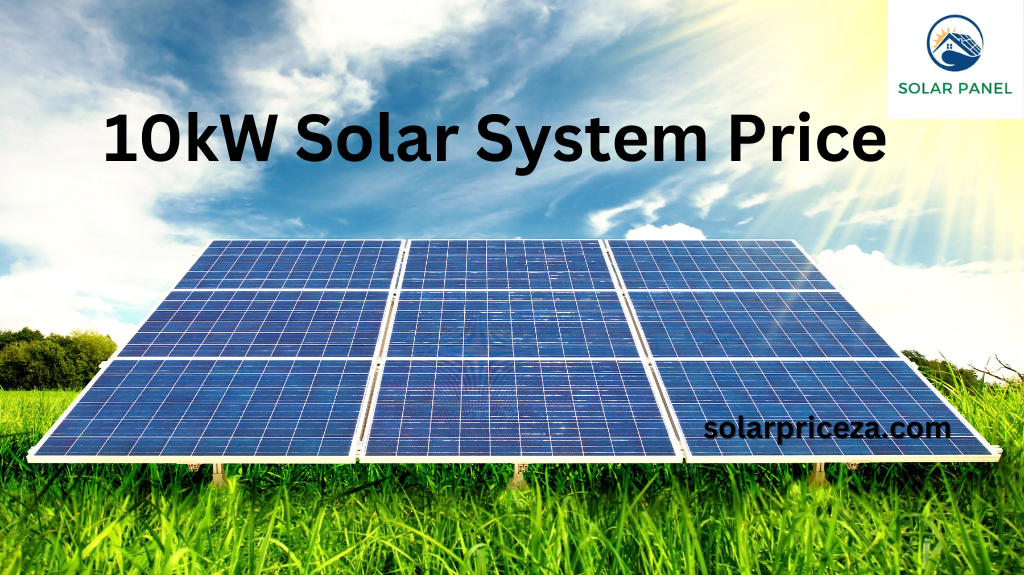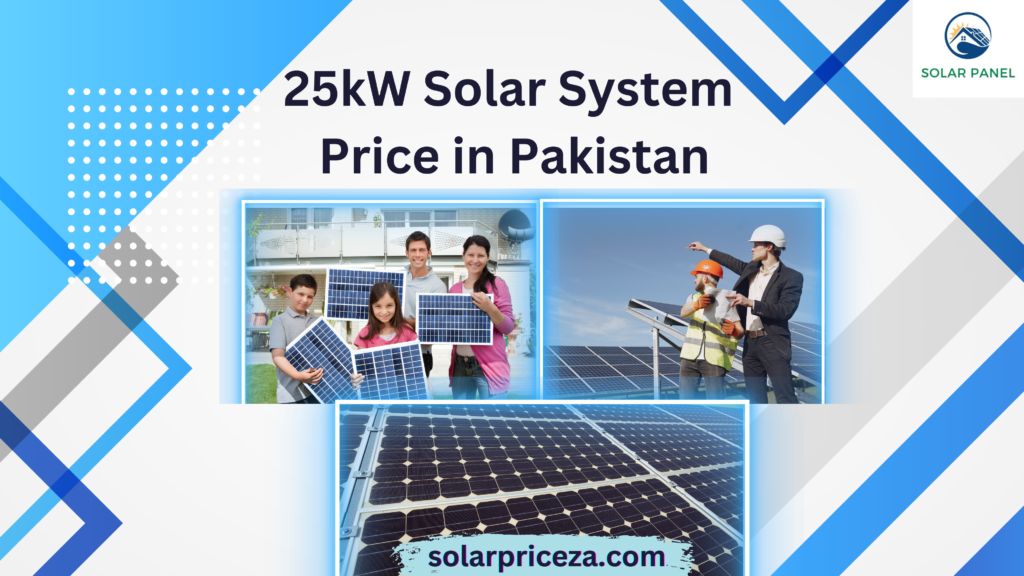Solar Systems for Homes in South Africa
As South Africa faces continuous energy issues, many homeowners turn to solar power as a clean and dependable alternative to grid electricity. Solar systems have the potential to save energy costs, boost energy independence, and promote environmental sustainability. Here’s a look at the alternatives, benefits, and considerations for installing solar systems in South African homes.
Why Solar Power?
South Africa has an abundance of sunlight, with an average of more than 2,500 hours each year. This makes it one of the best countries for harvesting solar energy. The advantages of installing solar systems in homes include:
- Cost Savings: Solar power can dramatically lower electricity bills by generating energy directly from the sun.
- Energy Independence: With continual load shedding and power interruptions, solar systems provide a dependable backup energy supply.
- Environmental Advantages: Solar energy is renewable and has lower carbon emissions than fossil fuel-based electricity.
- Long-term Investment: Although initial installation costs may be considerable, solar systems boost property value and pay for themselves over time through energy savings.

Types of Solar Systems for Homes In South Africa
There are three primary types of solar systems for homes:
Grid-Tied Systems
- These systems are connected to the main power grid.
- They are intended to lessen reliance on grid electricity by allowing homes to use solar power during the daytime.
- Excess energy created can frequently be put back into the grid, according to local rules.
- Ideal for places with reliable grid access but expensive electricity rates.
Off-Grid Systems
- Completely independent of the electrical grid.
- They store and distribute electricity using solar panels, batteries, and inverters.
- Ideal for rural locations or dwellings where a grid connection is not practical.
- A powerful battery system is required to provide energy availability at night or on overcast days.
Hybrid Systems
- Combine the advantages of grid-connected and off-grid solutions.
- Include battery storage to offer backup power during outages while still allowing for grid connectivity.
- They are a popular solution for metropolitan regions that experience load shedding since they are both flexible and dependable.
Components of a Solar System for Homes In South Africa
A residential solar power system in South Africa generally includes various crucial elements that are intended to capture plentiful sunlight and transform it into usable energy. Below are the main components:
1. Solar Panels (Photovoltaic Modules)
- Transform sunlight into direct current (DC) electricity.
- Types:
- Monocrystalline – High efficiency, expensive, long lifespan.
- Polycrystalline – Lower efficiency, cost-effective.
- Thin-Film – Flexible, lightweight, but less efficient.
- The recommended wattage varies based on the energy needs of your household. (e.g., 300W-500W per panel).
2. Inverter
- Transforms direct current (DC) electricity generated by solar panels into alternating current (AC) that powers household devices.
- Types:
- Grid-Tied Inverters – Connected to the municipal grid, allowing excess power to be fed back.
- Off-Grid Inverters – Work independently with battery storage.
- Hybrid Inverters – Combine grid connection and battery storage capabilities.
3. Solar Batteries (Energy Storage)
- Store extra energy for use during nighttime or when there is a power outage.
- Types:
- Lithium-ion Batteries – High efficiency, longer lifespan, but costly.
- Lead-Acid Batteries – Affordable but with lower efficiency and shorter lifespan.
Common selections in South Africa include lithium-ion batteries like the Tesla Powerwall, Freedom Won, and BlueNova.
4. Charge Controller (for Off-Grid Systems)
- It regulates the voltage and current from solar panels to batteries, preventing overcharging.
- Types:
- PWM (Pulse Width Modulation) – Budget-friendly but less efficient.
- MPPT (Maximum Power Point Tracking) – Higher efficiency, ideal for large systems.
5. Mounting Structure
- Secures solar panels to the roof or ground.
- Materials: Aluminum or galvanized steel for durability.
- Options:
- Roof-Mounted – Common for urban homes.
- Ground-Mounted – Suitable for large properties with open space.
6. Cabling and Electrical Accessories
- Solar cables, connectors (MC4), and fuses to connect components safely and efficiently.
- High-quality, UV-resistant cables are essential for durability.
7. Monitoring System
- Tracks solar power production and consumption in real-time.
- Options:
- Inverter-Based Monitoring – Built into some inverters.
- Standalone Monitoring Devices – App-based remote tracking.
8. Backup Generator (Optional)
- Provides power during prolonged cloudy days or unexpected demand surges.
- Common fuel types: Petrol, diesel, or gas.
9. Net Metering (for Grid-Tied Systems)
- Enables excess power to be returned to the national grid, depending on local regulations such as those set by Eskom or municipal providers.
Factors to Consider for Solar in South Africa:
- Load-Shedding Preparedness: Ensure adequate battery backup to cover outages.
- Energy Requirements: Determine daily consumption to size the system correctly.
- Budget: Balancing initial investment with long-term savings.
- Regulatory Compliance: Obtain necessary permits from local authorities and ensure compliance with SANS standards.
- Incentives: Check for potential government rebates or tax incentives.
The Complete Guide to How Home Solar Systems Work In South Africa

Costs and Incentives
The cost of establishing a solar system varies with its size, kind, and components. A basic grid-tied system for a small household typically costs around ZAR 50,000, but hybrid systems with battery storage can cost up to ZAR 150,000. To make solar more affordable, the South African government has implemented tax breaks for homeowners who invest in renewable energy. In 2023, individuals might claim a tax rebate of up to 25% of the cost of solar panels, up to a maximum of ZAR 15,000. These incentives, together with financing alternatives from solar suppliers, have pushed more homes to switch to solar energy.
Choosing the Right Solar System
When selecting a solar system, consider the following:
- Calculate your household’s average energy consumption to determine the necessary system size.
- Budget: Consider initial expenditures, upkeep, and possible savings.
- Consider your roof’s direction, shadowing, and available space for solar panels.
- Choose a reputable solar installer with favorable customer feedback and dependable after-sales service.
The Future of Solar in South Africa
With the government’s push for renewable energy and rising awareness of climate change, solar usage in South Africa is increasing. Solar systems are becoming more economical and efficient as technology advances and competition increases.
Switching to solar is more than simply a practical load-shedding solution; it is also a step toward energy security and sustainability. Investing in solar power allows South African homeowners to take control of their energy future.
FAQs
Why is solar popular in South Africa?
Frequent load shedding (power outages). Eskom is increasing its electricity costs. There is plenty of sunlight throughout the year. Incentives such as the renewable energy tax refund.
What types of solar systems for homes in South Africa are available?
Grid-Tied Systems: Connect to Eskom’s grid and rely on solar when the sun shines.Off-Grid Systems: They operate independently and are appropriate for isolated places. Hybrid systems combine solar, battery storage, and grid electricity to provide optimal reliability.
How much does it cost?
Costs depend on system size and components: Small system (3kW): ~R50,000 – R80,000.Medium system (5kW): ~R100,000 – R150,000.Large system (10kW+): ~R200,000+. Costs may vary based on battery inclusion, inverter type, and installation fees.
How long does installation take?
Most home systems require 2-5 days to install, depending on complexity and weather.
Do I need permission to install a solar system?
Grid-tied systems require clearance from both your local municipality and Eskom. Off-grid solutions normally do not require approval, but they must comply with safety laws.
Conclusion
South Africa confronts persistent energy issues, and many homeowners are turning to solar power as a clean and dependable alternative to grid electricity. Solar systems have the potential to save energy costs, boost energy independence, and promote environmental sustainability. The cost of establishing a solar system varies with its size, kind, and components. A basic grid-tied system for a small household typically costs around ZAR 50,000, but hybrid systems with battery storage can cost up to ZAR 150,000.


